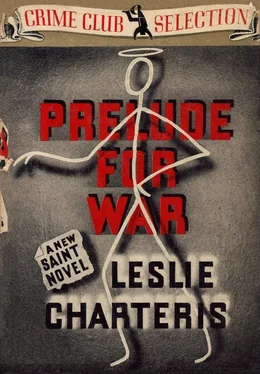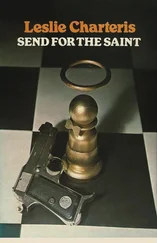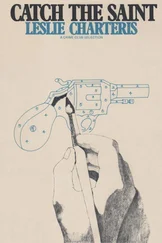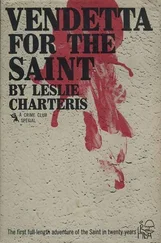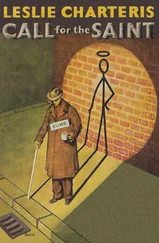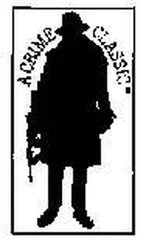Leslie Charteris - Prelude for War
Здесь есть возможность читать онлайн «Leslie Charteris - Prelude for War» весь текст электронной книги совершенно бесплатно (целиком полную версию без сокращений). В некоторых случаях можно слушать аудио, скачать через торрент в формате fb2 и присутствует краткое содержание. Год выпуска: 1938, Издательство: The Crime Club, Жанр: Крутой детектив, на английском языке. Описание произведения, (предисловие) а так же отзывы посетителей доступны на портале библиотеки ЛибКат.
- Название:Prelude for War
- Автор:
- Издательство:The Crime Club
- Жанр:
- Год:1938
- ISBN:нет данных
- Рейтинг книги:5 / 5. Голосов: 1
-
Избранное:Добавить в избранное
- Отзывы:
-
Ваша оценка:
- 100
- 1
- 2
- 3
- 4
- 5
Prelude for War: краткое содержание, описание и аннотация
Предлагаем к чтению аннотацию, описание, краткое содержание или предисловие (зависит от того, что написал сам автор книги «Prelude for War»). Если вы не нашли необходимую информацию о книге — напишите в комментариях, мы постараемся отыскать её.
Prelude for War — читать онлайн бесплатно полную книгу (весь текст) целиком
Ниже представлен текст книги, разбитый по страницам. Система сохранения места последней прочитанной страницы, позволяет с удобством читать онлайн бесплатно книгу «Prelude for War», без необходимости каждый раз заново искать на чём Вы остановились. Поставьте закладку, и сможете в любой момент перейти на страницу, на которой закончили чтение.
Интервал:
Закладка:
"Have some breakfast," he suggested convivially.
"I had my breakfast at breakfast time," Teal said with dignity.
He stood rather stiffly and sluggishly, holding his sedate black derby over his navel.
Simon lifted his shoulders in regret.
"There are times when you have an almost suburban smugness," he said deploringly. "Never mind. You'll excuse me if I go on with mine, won't you? Sit down, Claud. Take off your boots and make yourself at home. Why should these little things come between us?"
Teal sank heavily into a chair.
"I suppose you were up late last night," he said ponderously. "Is that why you're having breakfast so late this morning?"
"I don't know." The Saint punctured his second egg. "That wouldn't be a bad excuse; but why should I make excuses?" The Saint waved his fork oratorically. "One of the many troubles of this cockeyed age is the glorification of false virtues. The bank clerk gets up early because he has to. And consequently dozens of fortunate people who don't need to get up early drag themselves out of bed at insanitary hours because it makes them feel as virtuous as a bank clerk. Instead of aspiring towards freedom and emancipation, we make a virtue of assuming unnecessary restrictions. A man spends his life working to the position where he doesn't have to get to the office at nine o'clock, and then he boasts that he still gets up at seven-thirty every morning. Well, then, what was he working for? Why didn't he save his energy and remain a clerk? You might build an indictment of all our accepted values on that. Poor men nibble a crust of bread because that's all they've got, and millionaires go on a diet of dry crusts and soda water—"
"What were you doing last night?" asked the detective implacably.
Simon looked shocked.
"Really, Claud! Have you no discretion? Or have you by any chance become a gossip writer?"
"I just want to know where you were last night," Teal said immovably. "I know you've got one of your usual alibis, but I'd like to hear it. And then perhaps you'll tell me why you did it."
"Did what?"
"You know what I'm talking about."
"I wish I did. It sounds so intriguing."
"What were you doing last night?"
Simon buttered a slice of toast.
"So far as I recollect, I spent a classically blameless evening. An archbishop could have followed in my footsteps without getting a single speck of mud on his reverend gaiters. Preceded by massed choirs in white surplices, and marshalled by a fatigue party from the Salvation Army—"
"Let me tell you some of the things you did," Teal interrupted stolidly. "You dined at the Berkeley with Lady Valerie Woodchester. She left at about half-past ten, and you went to the Cafe Royal. You got back here towards twelve-fifteen, and at five minutes past one you went out again. Your friends Quentin and Uniatz were with you, and you were careful to see that you weren't followed. At twenty-five minutes past two Miss Holm left here in another of your cars, and she was also very careful to see that she wasn't followed. At four-thirty this morning you came in alone. I want to know what you were doing between one-five and four-thirty."
"What a man you are, Claud!" said the Saint with admiration. "Nothing is hidden from you. Your house must be full of little birds."
"It's my business to know what people like you are doing."
"You know," said the Saint in an injured tone, "I believe you must have been having me watched. I don't call that very friendly of you. Have you lost your old faith in me?"
"What were you doing between one-five and four-thirty this morning?" Teal repeated tigerishly.
The Saint stirred his coffee with an air of shy discomfort.
"I really didn't want you to know about that," he confessed. "You see, much as I love you, you're always the professional policeman, and you have to take such a morbidly legal view of things. The fact is, Peter and Hoppy and I decided that we didn't feel tired so we pushed off to a little club we wot of where they haven't any respect for the licensing laws, and we stayed there hardening our arteries and talking to loose women until nearly dawn."
"What's the name of this club?"
"That's just what I can't tell you, Claud. You see my point. If you knew where it was you'd feel you had to do something about closing it down, because any place in London where one might have a good time always has to be closed down. And that would be a pity, because it's quite a cheery little spot now, and these places always become so dismal when they get infested with disguised policemen snooping about for evidence and leaving the smell of Lifebuoy soap in their wake—"
"All right," Teal said with frightful restraint. "That's your story. And now suppose you tell me about those men you painted red, white and blue and left outside Luker's house."
The Saint put down his coffee cup. He wore the incredulous and appalled expression of a Presbyterian elder who has been accused of operating an illicit still.
"Painted?" he said hollowly.
"Yes."
"Red, white and blue?"
"Yes."
"Outside Luker's house?"
"Yes."
"Who were these men?"
"You know as well as I do. Their names are Bravache, Pietri and Dumaire."
The Saint shook his head with great concern.
"Somebody must have been pulling your leg, Claud," he said. "I simply can't imagine myself doing a thing like that, even after a night at the place where I was. Did anybody see me paint them and leave them outside Luker's house? Do they say I painted them?"
Mr Teal unwrapped a springboard of spearmint with wearily deliberate fingers, as if he were undressing himself for bed after a hard day. He had already spent a bad hour in dire anticipation of this interview and his forebodings had not been disappointed. But he had to go through with it. For an hour he had been preparing himself, wrestling with his soul, facing in prospect all the gibes and banter and infuriating mockery that he knew he would have to endure, drilling himself to the fulfilment of the vow that he would be calm, that he would be rocklike and masterful, that for this one lone historic occasion he would not let the Saint get under his skin and cut the suspenders of his self-control, as the Saint had done with fateful facility so often in the past; and the soul of Claud Eustace Teal had emerged tried and tempered from the annealing fires. Or nearly. He would triumph in the ordeal even though blood oozed from his pores.
"No," he said. "Nobody saw you do it. The men don't say it was you. They say they don't know who it was. But I know it was you!"
"Do you?" At that moment the Saint was as sleek as a seal. "What makes you think so?"
"I know it because Luker was one of the guests at that country-house fire that you were meddling in, where John Kennet was killed; and I should think of you in connection with anything that happened to Luker now. Besides that, two of these men are Frenchmen. When I saw you at that place where Ralph Windlay was murdered, you read me two cuttings from French newspapers and talked about something called the Sons of France. Red, white and blue are the French national colours. Painting those men like that and leaving them outside Luker's doorstep is just the sort of thing I'd expect of you. There's one connecting link all the way through, and you're it!"
Simon regarded him like a spot on the carpet.
"And that's your evidence, is it?"
Teal swallowed, but he nodded stubbornly.
"That's it."
"That's the collection of barefaced balderdash that's supposed to authorize you to take me into custody and lug me off to Vine Street. That's the immortal excretion of the best brains of Scotland Yard. Or have I misjudged you, Claud? Have you taken a pill and woken up to find you've got a genius for publicity? You'll certainly get a bale of it over this. Let's go on with it. What will the charge be? Wait a minute, I can see it all — 'That he did feloniously and with malice aforethought assault the complainants with an unlawful instrument, to wit, a paintbrush—' "
Читать дальшеИнтервал:
Закладка:
Похожие книги на «Prelude for War»
Представляем Вашему вниманию похожие книги на «Prelude for War» списком для выбора. Мы отобрали схожую по названию и смыслу литературу в надежде предоставить читателям больше вариантов отыскать новые, интересные, ещё непрочитанные произведения.
Обсуждение, отзывы о книге «Prelude for War» и просто собственные мнения читателей. Оставьте ваши комментарии, напишите, что Вы думаете о произведении, его смысле или главных героях. Укажите что конкретно понравилось, а что нет, и почему Вы так считаете.
